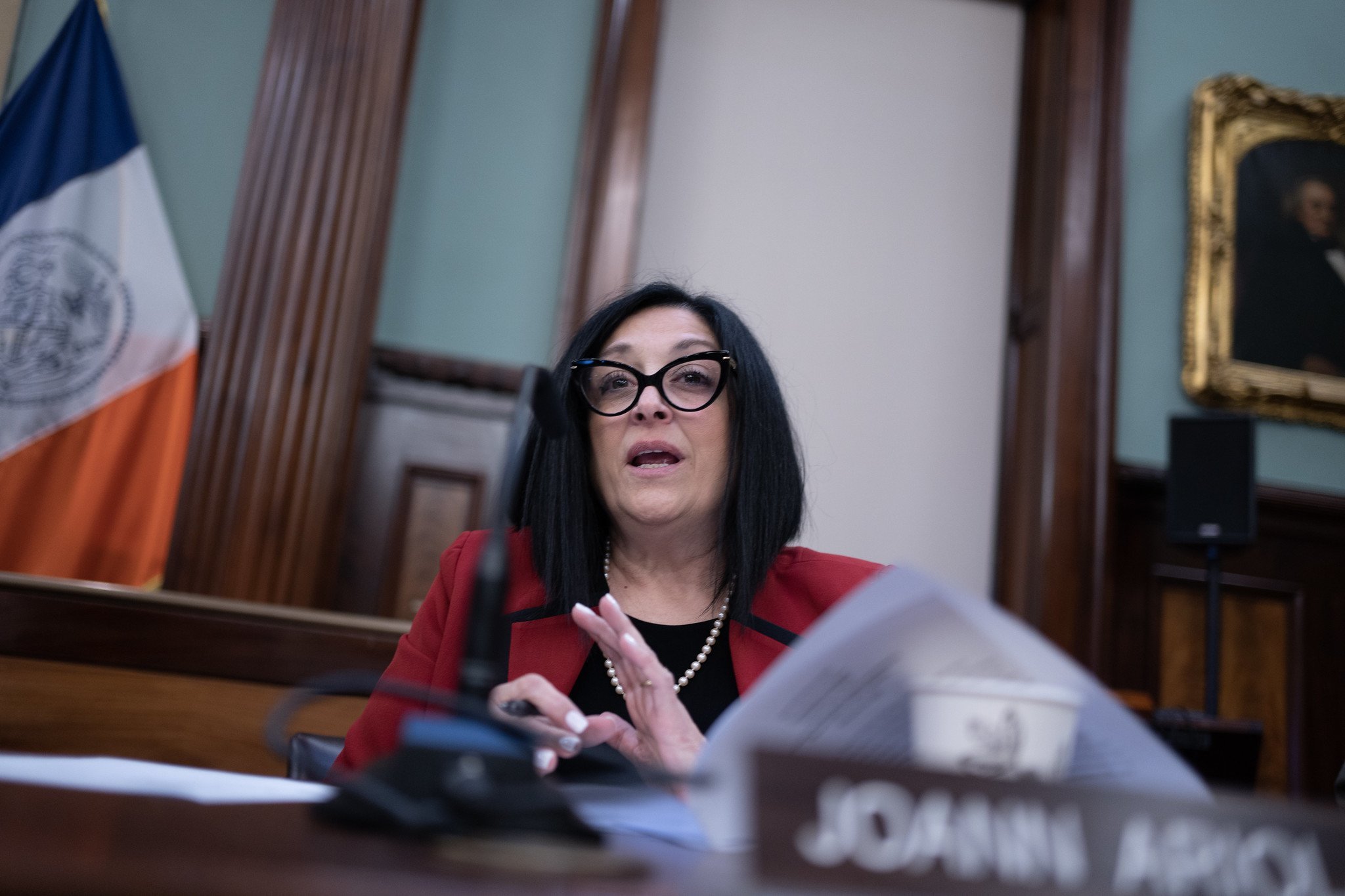Opinion: The City of No
/CITY COUNCILMEMBER JOANN ARIOLA. FILE PHOTO BY WILLIAM ALATRISTE/NYC COUNCIL MEDIA UNIT
By Joann Ariola
The City of Yes is a terrible idea.
There’s no dancing around it, the City of Yes as it stands now is absolutely awful, and will destroy communities throughout the five boroughs.
In a place as vibrant and diverse as New York City, attempting to take a cookie cutter approach and apply zoning regulations that might make sense for certain neighborhoods in Manhattan to the entire city is a recipe for disaster. We simply cannot sit by and allow some bureaucrat at a desk on Broadway to dictate that residential communities must permit high-rise buildings or allow every homeowner in the city to transform their garage and basement space into potential apartments. While it might sound nice to an individual to turn a garage into a rental unit, think about how many basements and garages are on your block. Now imagine how many more people – and how many more cars – would be added to the street if each of those basements and garages were occupied by a tenant. It would cause quite a bit of congestion, to say the least.
Let’s start from the southern portion of my district and work our way up, and explain piece by piece why the City of Yes is a big no for south Queens. The Rockaway peninsula is already vastly overcrowded and in a flood zone. The infrastructure is already struggling under the weight of the current population, and with the closest trauma center far off in Jamaica, healthcare for the communities there desperately needs to improve. Pushing potentially thousands of new people into the area through Accessory Dwelling Units (ADU’s) or through newly rezoned high-rise residential units will guarantee that the floundering infrastructure collapses outright, and the crowding on the few ways off the peninsula that would occur in the event of a natural emergency would be a nightmare.
Howard Beach has many of the same issues – it might be a bit closer to Jamaica Hospital, but it is still in an area wholly unsuitable for high-rise residences due to the flood zone. During heavy storms, first responders already struggle to navigate the streets, and this problem would only be exacerbated and no doubt lead to fatalities if even more people were to swamp the community.
Further north, in Ozone Park, Woodhaven, and Glendale, we see serious parking issues that raise significant questions about the wisdom of squeezing even more people into the area. Already, to find a spot near my office in Ozone Park, one needs to circle the area for sometimes as much as 20 minutes, hoping and praying that something opens up. In other parts of the city, I know this issue is much worse. Removing the parking mandates for new developments – something which the City of Yes intends to do – would lead to complete chaos. But hey, maybe this is all part of the anti-car legislation that some in the government are trying to push: if they can make it so difficult to park, maybe nobody will want a car? That’s an argument for a different time, but just think about how much more difficult it would be to own your vehicle if hundreds of new people were suddenly added to your street, and they didn’t have any lot to park in (as current building regulations mandate).
To add to all of this, the City of Yes legislation would effectively deny communities and their representatives any input into what goes on in their neighborhoods. Currently, City Council representatives are able to protect their communities because zoning changes are put to a vote in the Council. There, reps can discuss proposals with their colleagues, and explain why a change should or should not go through. The City of Yes would strip this away, leaving the choice entirely up to bureaucrats with no connection to the communities they are impacting.
Similarly, the City of Yes would also strip away the Uniform Land Use Review Procedure (ULURP). This procedure, which has been mandated since 1975, gives community boards the opportunity to weigh in on any developments happening in their areas. Although the community board recommendations are not binding, they are important but the City of Yes would completely remove this valuable input, thus further depriving communities from having a say about what is being built in their backyards.
This is all completely unacceptable. This is why I am so firmly against the City of Yes, and I hope you are too.
Joann Ariola is the councilmember representing Queens 32nd Council District.




